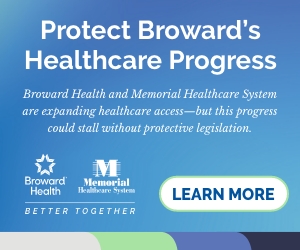After spending months discussing more than a hundred possible changes to the Florida Constitution, a state commission on Monday will head into its homestretch and begin the task of narrowing the list of proposed amendments to be placed on the November for voters to decide on.
The Florida Constitution Revision Commission (CRC), appointed once every 20 years to consider proposed amendments will gather in Tallahassee next week for seven days of meetings to consider a wide range of proposals dealing with everything from banning greyhound racing, offshore oil drilling and vaping in public places, to expanding rights for crime victims, to limiting terms of school board members, to enacting gun control measures.
The commission will then return to Tallahassee in April to give its final approval to the list of amendments that will be placed on the ballot.
In an op-ed article sent to the media this week, former Florida Supreme Court Chief Justice Major Harding urged the commission “to exercise restraint and reject proposals that detract from the Florida Constitution’s purpose.”
Harding represents a group called Keep Our Constitution Clean, a group of concerned businesses and Floridians that urges the commission to reject proposals that detract from the Florida Constitution’s purpose.
“Our state’s Constitution is meant to withstand the test of time,” Harding wrote. “Yet the Florida Constitution is becoming riddled with countless ordinary laws and specifics of government policy and regulation, such as the confinement of pregnant pigs, that lessen its status. The Florida Constitution is already nearly three times longer than the U.S. Constitution.”
Harding says proposals banning the wagering on greyhound racing and public vaping, or a proposal prohibiting the naming of public buildings after elected officials until that official leaves office, are best left to law and not an amendment in Florida’s Constitution.
“A constitution is like the foundation of a house, and statutes are like the exterior and finishes built upon that foundation,” added Harding. “The exterior and other finishes can be changed as situations or society changes. However, the foundation, the Florida Constitution, should only be altered when fundamental change is required.”
The CRC held its final public hearing earlier this week in St. Petersburg where hundreds of people turned out to speak on a number of the proposed amendments. A lot of them addressed controversial gun control amendments that surfaced in the past week in response to the school shootings in Parkland last month that killed 17 people.
Various proposals have been introduced that would constitutionally raise the legal age for a person to buy a firearm to 21, establish waiting periods and background checks on gun buyers, and ban the sale of bump stock and assault-style weapons.
All of those amendments, except for the assault weapons ban, were included in school safety package passed last week by the Legislature and signed into law by Gov. Rick Scott. The law was challenged immediately by the National Rifle Association which claims the increase in the legal age to buy a gun violates the rights of law-abiding citizens.
“As CRC members you can help defeat the NRA’s legal challenges to this historic legislation by placing the provisions included in this proposal on the ballot in November,” Tony Montalto told the commission Monday during its public hearing. Montalto’s 14-year-old daughter, Gina, was killed in the Parkland shootings
“To the Parkland people that have come here, I want you to know, even though we’re not commenting, in my heart I know the majority of this commission stands with you and we will do what’s right,” said Commissioner Frank Kruppenbacher, who was appointed by the governor.
To move on in the CRC’s amendment process, a proposal must receive a majority vote and will then be sent to the commission’s Style and Drafting Committee, which will have the task of refining the wording of the proposals that are given a nod of approval by the CRC over the next week-and-a-half. The committee will also write ballot titles for each amendment and decide whether amendments should be consolidated.
The full commission will then return to Tallahassee on April 16 to make its final decision on the proposals. Members will have until May 4 to finish their work.
In order for a proposed amendment to earn a spot on the November ballot, it must receive 22 votes from the commission’s 37 members. To win passage in November, a proposal would need 60 percent support from voters.




